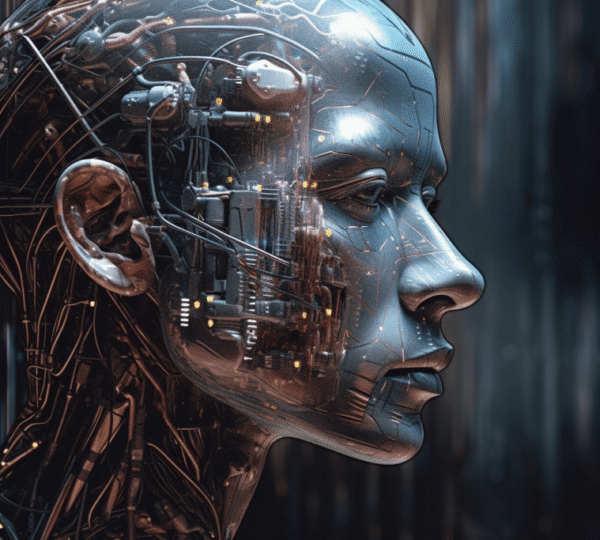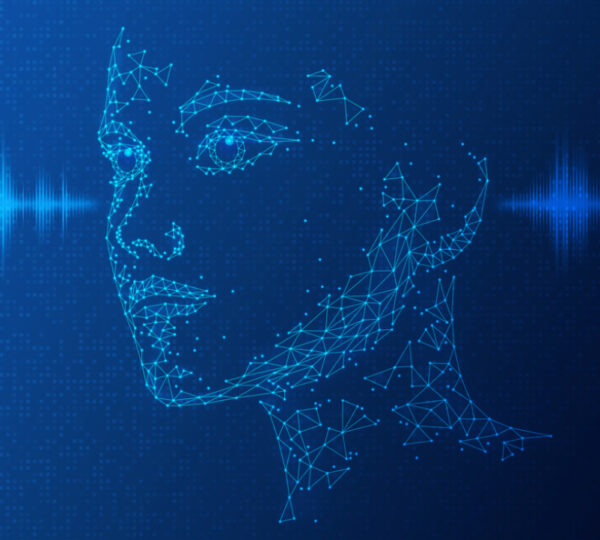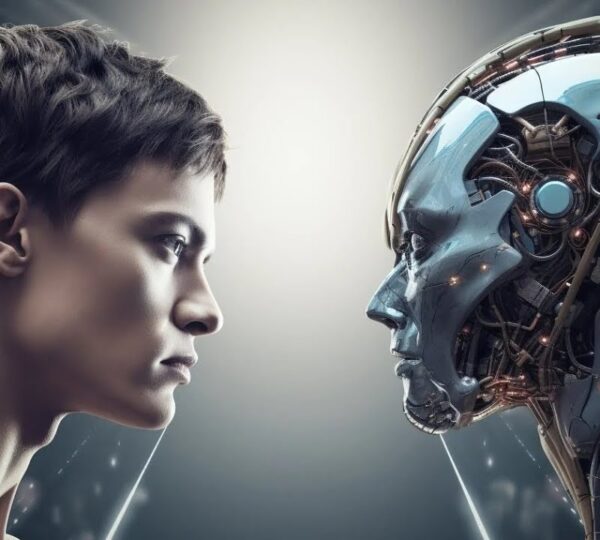Introduction
Artificial Intelligence (AI) has become one of the most transformative technologies of the 21st century. From voice assistants and recommendation engines to self-driving cars and generative models, AI is increasingly shaping how humans live, work, and think. At the same time, human intelligence our ability to reason, adapt, and create remains the benchmark against which AI is measured.
But the question persists: What exactly is the difference between AI and human intelligence? Are machines capable of truly “thinking” like us, or are they simply mimicking cognitive processes through algorithms and vast amounts of data?
This article explores the key differences between AI and human intelligence, examining where each excels, where they fall short, and how they can work together in the future.
Understanding Human Intelligence
Human intelligence is multidimensional. It is not only about solving problems or analyzing data but also about creativity, emotions, and moral judgment.
Cognitive Processes
Human intelligence is shaped by multiple interlinked cognitive functions:
- Learning : We acquire knowledge through direct experience, social interactions, and formal education. Unlike machines, humans often learn from a single example.
- Reasoning : Logic and critical thinking enable us to solve problems and anticipate consequences.
- Creativity : The human brain generates original art, music, innovations, and even abstract ideas like philosophy.
- Memory : Humans recall past experiences, sometimes imperfectly, and apply them in new contexts.
- Emotions : Joy, empathy, fear, and love deeply influence our decisions, shaping culture, art, and relationships.
Biological Basis
The brain is a biological marvel, containing nearly 86 billion neurons connected by trillions of synapses. These networks adapt continuously, a property called neuroplasticity. Unlike rigid code, the human brain rewires itself after trauma, during learning, or under new environmental conditions.
Hormones and neurotransmitters, such as dopamine and serotonin, influence thought and behavior—something machines cannot replicate. Culture, upbringing, and life experiences further enrich human intelligence beyond mere information processing.
Limitations of Human Intelligence
Despite its power, human intelligence has clear limits:
- Memory can be unreliable.
- Cognitive biases distort perception and decision-making.
- Emotional responses sometimes override rational thought.
- Processing speed is limited compared to machines.
Humans may be adaptable, but we cannot instantly analyze millions of variables the way algorithms can.
Understanding Artificial Intelligence
Artificial Intelligence is the science of building machines that can mimic aspects of human thought.
What is AI?
AI refers to computer systems capable of performing tasks normally requiring human intelligence—such as understanding language, recognizing patterns, solving problems, or making predictions.
Narrow AI vs. General AI
- Narrow AI (Weak AI): Programs designed for specific tasks. Examples include Google Translate, Netflix recommendations, and fraud detection systems. These systems excel at their function but cannot generalize beyond it.
- General AI (Strong AI): A theoretical concept where machines match or surpass humans across all intellectual domains. True general AI has not been achieved, though research continues.
Core Technologies
- Machine Learning (ML): Systems improve by identifying patterns in data.
- Deep Learning: Multi-layered neural networks inspired by the brain. These power image recognition, speech recognition, and large language models.
- Natural Language Processing (NLP): Enables machines to understand and generate human language.
- Computer Vision: Allows AI to interpret and analyze visual data.
Strengths and Weaknesses of AI
- Strengths: Incredible speed, accuracy, scalability, and the ability to process massive datasets without fatigue.
- Weaknesses: Lack of true creativity, inability to transfer knowledge across contexts, and absence of consciousness or emotional depth.
Key Differences Between AI and Human Intelligence
Although both solve problems and learn, they differ in fundamental ways.
Learning and Adaptability
- Humans: Learn intuitively, often from one example, and apply knowledge flexibly.
- AI: Requires massive datasets, struggles with transfer learning, and depends on structured inputs.
Creativity and Innovation
- Humans: Can imagine things never seen before, like space travel or abstract art.
- AI: Generates outputs by remixing patterns from training data rather than original inspiration.
Emotional Intelligence and Empathy
- Humans: Experience empathy and emotional resonance that guide personal and social behavior.
- AI: Can simulate empathy in conversation but does not feel.
Consciousness and Self Awareness
- Humans: Possess subjective awareness, purpose, and moral agency.
- AI: Operates without awareness it calculates, it does not “know” it exists.
Decision-Making Under Uncertainty
- Humans: Use intuition, context, and ethics when facing unknowns.
- AI: Makes probabilistic decisions but lacks moral judgment.
Areas Where AI Outperforms Humans
AI surpasses human intelligence in measurable ways:
- Speed and Accuracy: Processes millions of calculations in milliseconds.
- Data Processing at Scale: Identifies patterns in datasets too vast for humans to comprehend.
- Automation of Repetitive Tasks: Reduces errors and labor costs in industries like manufacturing and logistics.
- Predictive Analytics: Forecasts trends in finance, healthcare, and climate science with precision.
Areas Where Humans Outperform AI
Despite AI’s strengths, humans remain superior in many dimensions:
- Common Sense Reasoning: Contextual thinking, irony, and humor elude machines.
- Emotional Connection: Doctors, teachers, and leaders build trust through empathy.
- Ethical Judgment: Humans consider fairness, morality, and cultural values.
- Cross-Domain Creativity: We merge knowledge from diverse areas to invent breakthroughs.
AI + Human Collaboration (Hybrid Intelligence)
The future is not competition but collaboration.
Human in the Loop Systems
AI handles repetitive analysis, while humans oversee and interpret results—critical in healthcare and security.
Decision-Support Tools
Executives use AI-driven insights but rely on judgment to craft strategies that align with values and long-term goals.
Augmented Creativity
AI suggests ideas, drafts, or visuals, and humans refine them with emotional resonance, originality, and cultural context.
The Future of Intelligence
Can AI Achieve General Intelligence?
AGI remains speculative. Progress in deep learning shows promise, but achieving flexible, human-like reasoning is a major challenge.
Consciousness vs. Computation
Philosophers debate whether consciousness can emerge from computation or whether it requires biological processes unique to humans.
The Future Workplace
AI will automate repetitive roles but enhance human-centric jobs requiring leadership, creativity, and interpersonal skills. The workforce of tomorrow will feature “augmented” humans empowered by AI tools.
Ethical and Societal Considerations
Job Displacement vs. Creation
Automation threatens some jobs but creates others in AI development, ethics, and oversight. Continuous reskilling will be critical.
Bias in AI vs. Human Bias
AI can inherit bias from data. Human oversight is essential to ensure fairness, accountability, and transparency.
Trust, Safety, and Regulation
AI must operate within ethical frameworks. Policies must enforce responsible use while encouraging innovation.
Conclusion
AI and human intelligence are not rivals but complementary. AI excels in speed, scale, and precision, while humans remain unmatched in creativity, empathy, and moral reasoning.
The future lies in hybrid intelligence, where humans and AI collaborate to create a smarter, fairer, and more sustainable world. Intelligence, after all, is not just about processing information—it is about meaning, purpose, and values. Those remain uniquely human.
FAQs
Q1: What is the difference between AI and human intelligence?
AI relies on algorithms, data, and computational models, while human intelligence is shaped by creativity, emotions, intuition, and consciousness. Humans think holistically, whereas AI excels in speed and data-driven precision.
Q2: Who is smarter, humans or AI?
AI is faster in processing vast amounts of data, but humans remain superior in creativity, empathy, and ethical reasoning. True intelligence lies in combining AI efficiency with human judgment.
Q3: Can AI replace human intelligence completely?
No. AI can automate tasks and outperform humans in narrow fields but lacks consciousness, morality, and emotional depth, making full replacement impossible.
Q4: What is an example of AI vs human intelligence in real life?
In healthcare, AI can scan thousands of X-rays quickly and identify anomalies, but a human doctor provides diagnosis context, empathy, and ethical decision-making.
Q5: What is the AI vs. human intelligence debate about?
The debate centers on whether machines can ever achieve human level general intelligence, and whether automation threatens jobs, creativity, or ethical decision-making.
Q6: Is there a graph or chart showing AI vs human intelligence?
Yes. Many comparisons highlight AI’s advantages in speed, scalability, and automation, while human intelligence dominates creativity, ethics, and emotional awareness. Adding a visual chart makes these differences clearer for readers.
Q7: What are the strengths of AI compared to humans?
AI excels at data analysis, automation, scalability, and predictive analytics. It never tires, works at high speed, and processes information far beyond human capability.
Q8: What are the strengths of humans compared to AI?
Humans demonstrate emotional intelligence, moral reasoning, common sense, and the ability to think creatively across different domains qualities AI cannot replicate.
Q9: How do students write essays on AI vs. human intelligence?
An effective essay should cover definitions, similarities, and differences, highlight examples (healthcare, education, business), and conclude that AI complements rather than replaces humans.
Q10: What is a simple comparison of AI and human intelligence?
- AI: Fast, data-driven, lacks emotions.
- Humans: Creative, empathetic, ethical, but slower in data processing.
Q11: Can AI develop emotions like humans?
No. AI can simulate emotions in conversations (like empathetic chatbots) but does not feel or experience emotions biologically or psychologically.
Q12: How can AI and humans work together effectively?
Through hybrid intelligence: AI handles large-scale computation, while humans provide creativity, empathy, and moral guidance. This collaboration leads to better decision making.
What is human intelligence?
Human intelligence refers to the cognitive ability of humans to learn, reason, solve problems, adapt to new environments, and apply creativity and emotions in decision-making. It includes skills such as critical thinking, memory, problem-solving, and empathy, which machines cannot replicate authentically. Unlike artificial intelligence, human intelligence is shaped by biology, culture, and lived experiences.
Will artificial intelligence replace human jobs?
Artificial Intelligence is already automating repetitive and data-driven tasks in industries like manufacturing, finance, and customer service. However, AI is unlikely to replace all jobs. Instead, it will reshape the workforce by eliminating routine roles while creating new opportunities in AI development, data science, ethics, healthcare, and creative industries. Humans will remain essential for jobs requiring empathy, leadership, and complex decision-making.
Will AI surpass human intelligence?
AI already surpasses humans in narrow domains such as data analysis, pattern recognition, and computational speed. However, achieving Artificial General Intelligence (AGI)—where machines can match or exceed human reasoning, creativity, and emotional depth—remains a theoretical concept. Experts are divided on whether AGI will ever be achieved, and if so, it may take decades.
Is human intelligence declining?
There is ongoing debate about whether human intelligence is declining. Some studies suggest average IQ scores have plateaued or slightly dropped in recent decades, while others argue this is due to changes in education, environment, or testing methods. What’s clear is that human intelligence is evolving alongside technology, shifting focus from memorization to problem-solving and digital adaptability.
How is AI different from human intelligence?
Artificial Intelligence differs from human intelligence in several ways:
- AI: Processes large amounts of data quickly, follows algorithms, and excels at specific tasks but lacks self-awareness.
- Humans: Use intuition, emotions, creativity, and morality to solve problems in diverse and flexible ways.
In short, AI is computational, while human intelligence is holistic and experiential.



